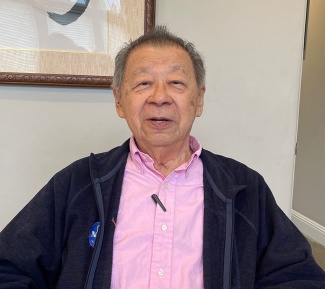Born in West Memphis, Arkansas, in 1934, Lum is the youngest of six children born to Bertha and Charlie Lum. His mother, from Mississippi, and father, a Chinese immigrant, opened a grocery store and a restaurant. Though Bertha had only a second-grade education and Charlie had no formal schooling, they were fierce advocates for their children’s educational rights.
When the Lums were told that their kids could not attend the local public school, Bertha fought to get them admitted. A family friend brought the same issue before the Supreme Court in Lum v. Rice and lost. The 1927 decision was later overturned in 1954 by Brown v. Board of Education.
Lum followed his oldest sister to Los Angeles after finishing high school. Discouraged that he could only find work in a Chinatown poultry shop, he enlisted in the military in 1954. When Lum’s service ended, he enrolled at Tulane and earned an accounting degree under the GI Bill, which provides educational assistance to service members and veterans.
Returning to Los Angeles in 1958, he got a job with the IRS and started law school at the University of California, Los Angeles. He transferred to the University of Southern California’s law school’s night program so he could keep his day job.
Half the students didn’t finish the program, but Lum persevered. He was married and a father of two by graduation. He met his wife, Theresa Cheng, in 1959.
“My wife spoke perfect Mandarin, and I spoke nothing. I’m a Southern boy,” he said.
Lum credits Theresa — his interpreter in high-stakes meetings with Mandarin-speaking clients — for his professional and financial success.
Though he doesn’t speak Mandarin or Cantonese, with Theresa’s help, Lum established himself as a Chinatown civic leader. His roles included president of the Los Angeles Chinese Chamber of Commerce; chairman of the Chinatown Advisory Committee to the Community Redevelopment Agency; and, most importantly, founding president of the nation’s first Asian bar association.
Lum trained himself to be a generalist. Tax and corporate law, personal injury, immigration — “you had to know everything,” he said, “because you knew that if you didn’t take the case, nobody would take it.”
He opened the first Chinese law firm in downtown Los Angeles, Lum & Ku, with branch offices in San Francisco and Taipei. In the late 1980s, Lum accepted a partnership at Lewis, D’Amato Brisbois and Bisgaard. He exited in 1990 and started his current practice in Pasadena.
Over his career, he represented hundreds of clients — from local shopkeepers, to major commercial airlines, to astronaut Taylor Wong, the first Chinese person to go into space. He worked on political campaigns for Mike Dukakis, Dianne Feinstein and Gray Davis. He even made a run for U.S. Congress in 1992.
Lum, who is making final edits to his book-length memoir, still keeps a finger in the family practice, where his son, Justin, is the managing partner.































































